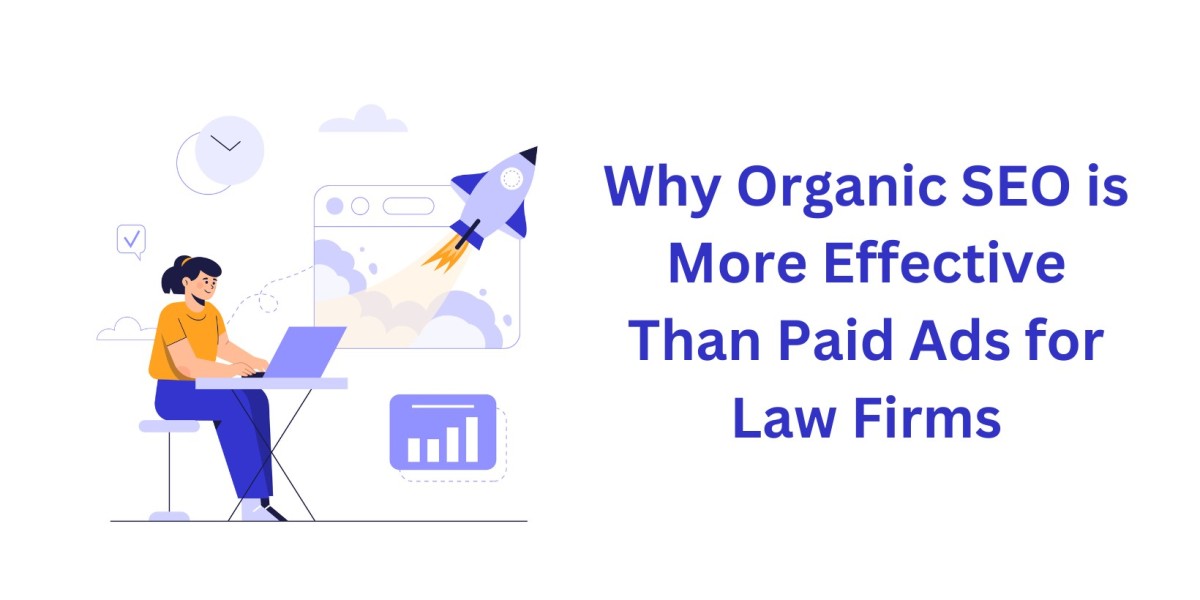In an era where digital presence defines credibility, law firms cannot afford to overlook the power of search engines. But while many firms are lured into the fast-paced world of paid advertisements, savvy legal professionals know the real value lies in organic SEO. The difference between the two approaches isn’t just about cost; it’s about trust, longevity, and meaningful client relationships.
For law firms striving to dominate their markets, understanding why organic SEO consistently outperforms paid ads is essential. This blog will unravel the nuances, separating hype from reality, and provide actionable insights for law firms to leverage organic SEO to its fullest potential.
Paid Ads vs. Organic SEO: The Showdown
When law firms invest in paid ads, they’re essentially renting visibility. Once the ad budget is exhausted, the visibility vanishes, leaving the firm at square one. Organic SEO, on the other hand, builds a foundation for sustained online visibility. It’s akin to owning a piece of prime real estate on the digital map—an asset that grows in value over time.
But the distinction goes deeper. Consider these critical factors:
1. Cost Effectiveness
Paid ads require a consistent influx of cash to maintain visibility. For competitive legal keywords like “personal injury lawyer” or “corporate law firm,” costs can soar to hundreds of dollars per click. Organic SEO, while requiring upfront investment, offers compounding returns. Once your website ranks organically, the traffic is essentially free.
2. Client Trust
The legal profession thrives on trust. Clients seek attorneys who are credible, reliable, and authoritative. Organic search results are perceived as more trustworthy because they’ve earned their position through relevance and authority. Conversely, users are often skeptical of paid ads, associating them with businesses vying for attention rather than genuinely deserving it.
3. Longevity
Paid campaigns are fleeting. They stop delivering the moment you pause your spend. Organic SEO, however, continues to drive traffic long after your initial efforts. For law firms, this means consistent visibility to potential clients without the need for constant financial input.
How Organic SEO Aligns with the Legal Client Journey
Legal clients are meticulous. Whether it’s a divorce case, estate planning, or corporate litigation, clients conduct in-depth research before committing to a firm. Organic SEO caters to this client behavior, creating touchpoints throughout their journey.
Stage 1: Awareness
At this stage, potential clients may not even know they need a lawyer. They’re searching for answers to their questions, like “What are my rights after a car accident?” or “How to draft a will.” Optimizing content around these queries positions your firm as a helpful resource, building trust before the client even knows they need your services.
Stage 2: Consideration
Once a client recognizes their need for legal help, they’ll compare options. Organic SEO ensures your website appears in searches for terms like “best personal injury lawyer near me” or “top-rated divorce attorney.” A well-optimized website, with informative blogs, testimonials, and a clear value proposition, helps tip the scales in your favor.
Stage 3: Decision
At this point, the client is ready to choose a firm. Local SEO plays a critical role here, ensuring your firm is prominently displayed on Google Maps and local search results. Reviews, case studies, and an intuitive website further reinforce your credibility.
Key Elements of Organic SEO for Law Firms
Building an effective organic SEO strategy for your law firm requires a multifaceted approach. Here’s how you can dominate the search engine rankings:
1. Targeting the Right Keywords
Legal SEO is highly competitive. Generic terms like “lawyer” or “attorney” won’t cut it. Focus on long-tail keywords such as “employment lawyer in Chicago” or “immigration attorney for startups.” These are less competitive and reflect the specific intent of your target audience.
2. Publishing High-Quality Content
Law is a complex subject. Clients appreciate content that simplifies legal jargon into digestible, actionable insights. Blog posts, FAQs, and case studies tailored to common client concerns are invaluable. For instance, a blog titled “Steps to Take After a Workplace Accident” not only drives traffic but also positions your firm as a trusted advisor.
3. Optimizing Local SEO
Law firms serve specific communities. Local SEO ensures your firm appears in searches like “estate planning lawyer near me.” Claim your Google Business Profile, optimize it with accurate contact information, and encourage satisfied clients to leave reviews.
4. Building Backlinks
Backlinks from reputable websites act as endorsements for your firm. Seek opportunities to contribute guest articles to legal publications or collaborate with local organizations to gain authoritative backlinks. These links signal to search engines that your website is trustworthy and relevant.
5. Enhancing Technical SEO
A sleek website is essential. Ensure it’s mobile-friendly, loads quickly, and has a clear navigation structure. Technical issues like broken links or slow loading times can hinder your SEO efforts and frustrate potential clients.
Why Organic SEO Outshines Paid Ads for Law Firms
Building Authority, Not Dependency
Paid ads can deliver quick results, but they create dependency. Every click comes at a cost, and scaling requires an ever-increasing budget. Organic SEO, on the other hand, builds authority. When search engines recognize your website as a go-to source for legal information, your visibility increases organically, without the need for constant spending.
Meeting Clients Where They Are
Organic SEO aligns with how clients search for legal services. Paid ads may appear at the top of the page, but many users scroll past them to reach organic results. By focusing on SEO, you’re meeting clients where they naturally look, rather than trying to interrupt their experience with ads.
Creating a Competitive Edge
In a saturated legal market, standing out is crucial. Organic SEO provides an edge by positioning your firm as a thought leader. Clients who encounter your informative blogs, comprehensive guides, and helpful resources are more likely to remember and trust your brand.
Common Pitfalls to Avoid in Legal SEO
While organic SEO is powerful, it’s not without its challenges. Avoid these common mistakes:
- Keyword Stuffing: Overusing keywords can harm your rankings and make your content less readable. Focus on natural, meaningful integration of keywords.
- Neglecting Mobile Users: Many searches are conducted on mobile devices. A non-mobile-friendly site can drive potential clients away.
- Ignoring Analytics: Regularly review your website’s performance to identify what’s working and what needs improvement. Metrics like bounce rates and session duration provide valuable insights.
Conclusion
For law firms, organic SEO isn’t just a marketing strategy; it’s a long-term investment in building credibility, trust, and visibility. Unlike paid ads, which offer fleeting results, organic SEO creates a sustainable foundation for attracting and retaining clients. By optimizing your website, crafting valuable content, and targeting the right keywords, your firm can become a dominant force in the digital landscape.
Partnering with an experienced organic SEO agency can amplify your efforts, ensuring your firm ranks where it matters most—right in front of the clients who need your services. The shift from paid ads to organic SEO is not just a trend; it’s a smarter, more effective way to grow your law firm in a competitive digital world.







